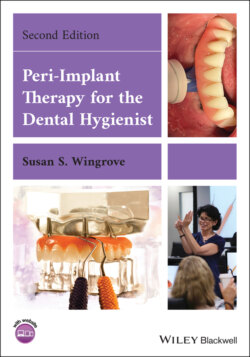Читать книгу Peri-Implant Therapy for the Dental Hygienist - Susan S. Wingrove - Страница 36
Medical history/risk assessment forms
ОглавлениеPeriodontal medicine and implant therapy add a new dimension to how we look at medical history questions and develop our treatment and maintenance protocols. Dental professionals need to pay close attention to the medical history form with respect to what drugs, vitamins, and/or over‐the‐counter medications the patient is taking on a regular basis. Also, identify any risk factors that could interfere with successful implant therapy.
It is important to carefully read, review, and walk through the patient’s medical history with the patient at every implant maintenance or restorative appointment. It is also important to record if the patient is in the care of a physician at the present time and for what medical condition. This could have an impact on the overall health of the implant, maintenance requirements, and/or the proposed treatment plan. If the patient has uncontrolled diabetes, for example, it increases the risk of peri‐implantitis and ultimately may result in implant failure.
How often have you asked a patient, “Are there any changes in your medical history?” and received the “no changes” comment, then, in the process of the patient’s maintenance appointment, the patient mentions he or she has just had a stent or a pacemaker placed? The written medical history is important, but you must ask specific questions, go down the list, listen, and be observant. Previous periodontitis and poor wound healing following dental surgical treatments are identifiable for dental professionals and can help identify oral systemic risk factors.
